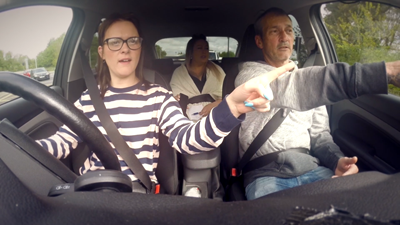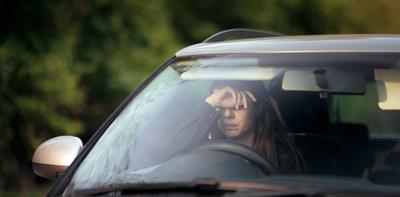
Thatcham Research has launched a new rating system for cars with keyless entry, assessing how secure they are from theft. Although these systems are increasingly exploited by car thieves, we share some simple steps drivers can take to protect their cars.
What is keyless entry?
Cars with keyless entry have a fob that communicates with the vehicle when it is within a certain range. It lets the owner of a car open it and drive away without having to take the key fob out of their pocket.
Thieves are using technology to steal these vehicles with a method known as relay theft.
The relay attack
Thieves normally carry out relay attacks on keyless cars that are parked close to the owner’s house, as that’s where the car key is most likely to be kept.
The criminals work in pairs. One, outside the victim’s home, has a device which remotely receives the car key signal from inside the building. This signal is then transferred to a second device, which is placed next to the target car, enabling the thieves to quickly unlock the vehicle and drive away.
Not all cars are at risk. If you have the sort of key fob that you have to press a button on to unlock your car, then it’s not keyless entry, and your car isn’t vulnerable to relay theft.
Choose a secure car
If you’re buying a new car, make sure you choose one with the best possible security features. Last year, What Car? magazine tested cars fitted with keyless entry and start systems, and its security experts managed to break into some of them in just 10 seconds.
To help tackle the problem, Thatcham Research has started giving cars ratings based on how secure their keyless entry systems are.
At the start of 2020 Thatcham Research assessed 13 new cars. Among the more secure models it identified were the BMW X6 M50d, Land Rover Discovery Sport D150, Mini EV, Škoda Superb and Toyota Supra - these all gained ‘Superior’ ratings for all-round security and the presence of security against a relay attack.
But ‘Poor’ ratings were awarded to some models with keyless systems which Thatcham Research’s security engineers were able to access and start the vehicles, in much the same way that thieves would using a relay attack. These included the Mazda CX-30 and Vauxhall Corsa Ultimate Turbo 100.
Thatcham Research says that while progress is being made by carmakers, some new models still aren’t secure enough.
Richard Billyeald, chief technical officer at Thatcham Research, said: “The number of carmakers now offering relay attack counter-measures with new vehicles is steadily increasing and should be applauded. However, all new cars with keyless systems ought to have a solution to this long-standing vulnerability in place.”
What can I do to protect my car?
If you do have a keyless entry car, then there are several steps you can take to reduce the chances of your car falling prey to a relay attack or other car theft:
- Store electronic key entry systems in a tin container or Faraday bag, to block the signal given off by your keys. Faraday bags are cheap - Auto Express recently compared some of the best metal lined bags on the market, and the Defender Signal Blocker, which only costs around £5, came out on top.
- Turn off your keyless entry system overnight. If you aren’t sure if you can do this, check your car manual.
- The basics still help too, whether or not your car is keyless: aim to park your car in well-lit and well-populated areas and don’t leave valuables on display. Also, when you’re at home, keep your car keys - including any spares - well away from doors and windows.
- When shopping for a new car, it may be a good idea to ask your dealer whether they offer fobs with added security, such as motion-sensor fobs that go to sleep.
To read more about protecting your car, as well as road safety, go to Solved.
You can find out more about our car insurance here.


